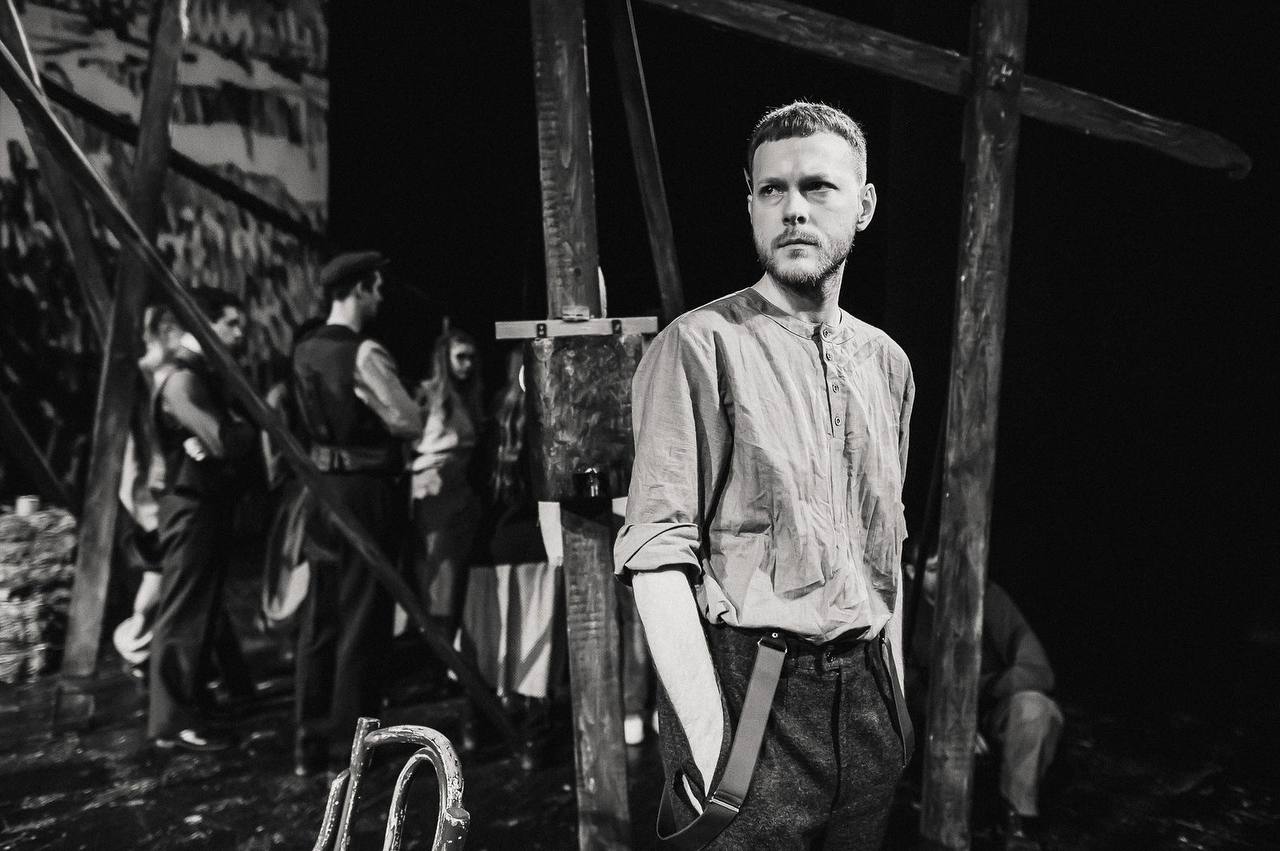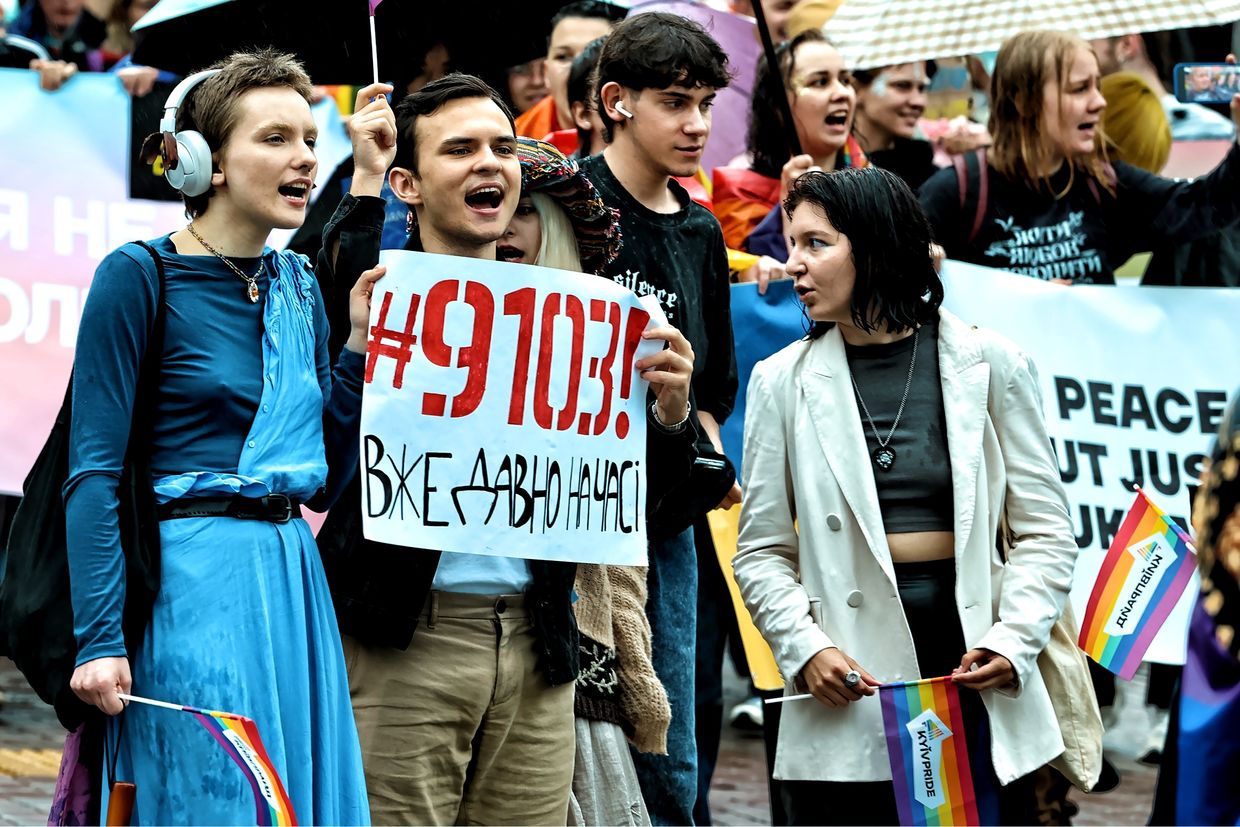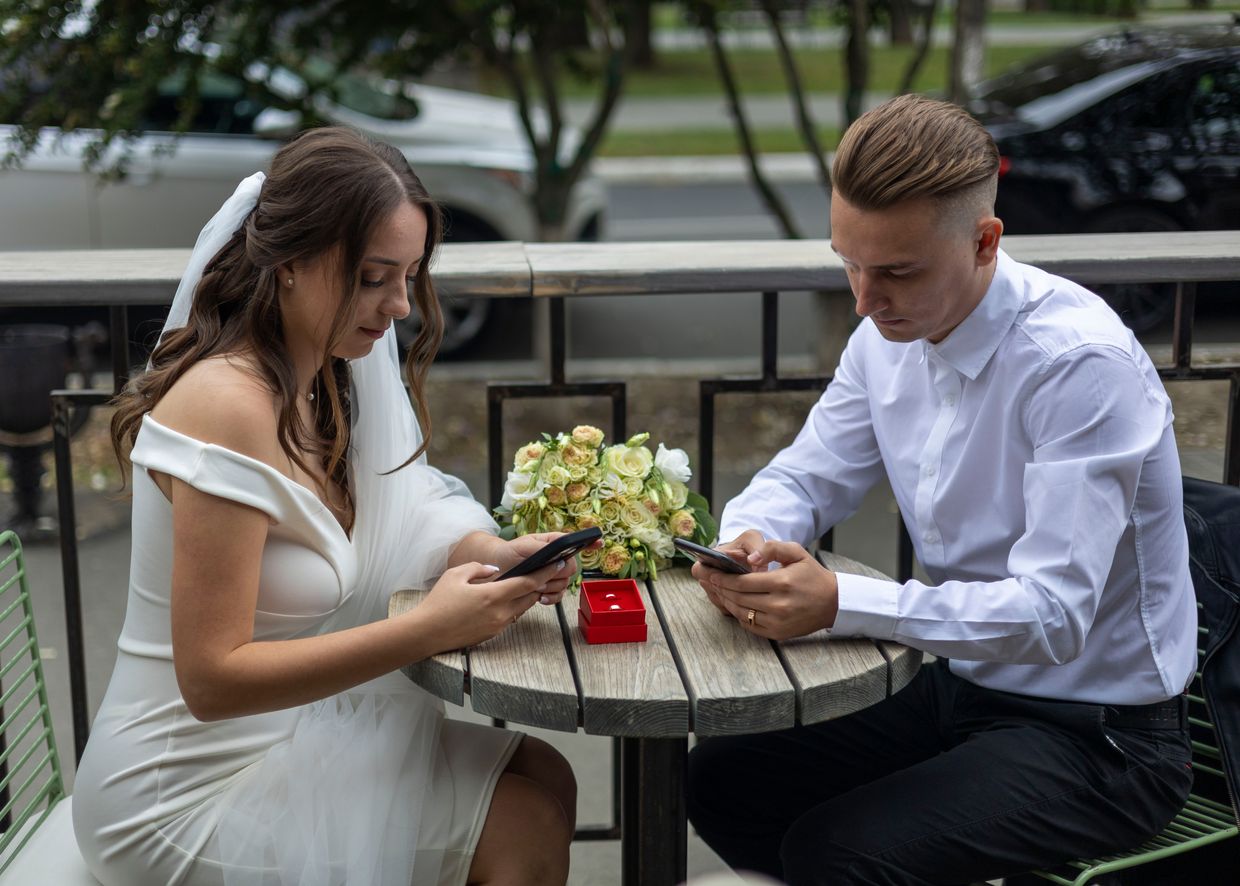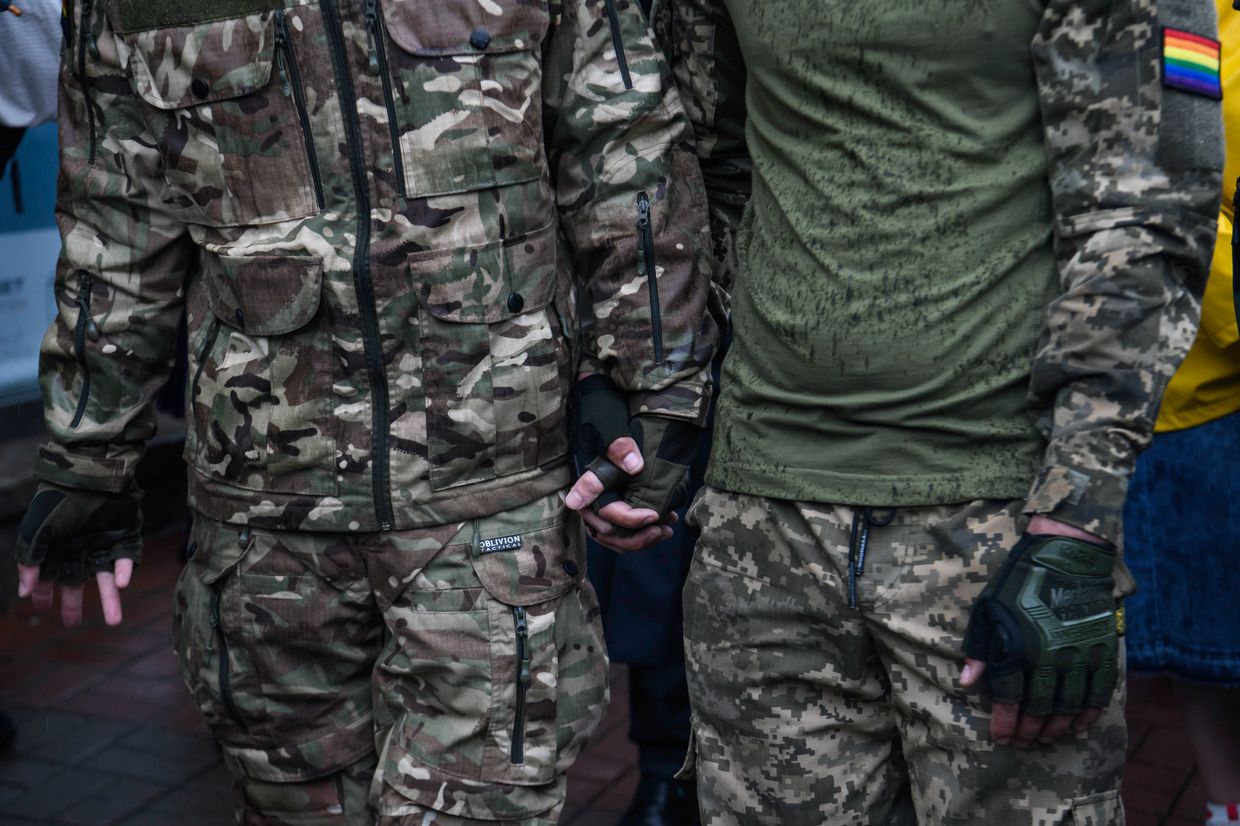Editor's Note: This story was sponsored by Gender Zed, a Ukrainian human rights organization that works with a broad range of issues, including sexual orientation and gender identity, gender equality issues, women’s rights, and prevention of HIV infection and sexually transmitted diseases.
Andrii Kovalenko, 35, and his partner are among many couples torn apart by the war, but their situation comes with an additional challenge.
As a same-sex couple, they do not have the same rights in Ukraine as a heterosexual one.
After joining the army as a volunteer in the summer, Kovalenko's partner, whose name he does not disclose for security reasons, has been fighting near Pokrovsk, Donetsk Oblast, in one of the war’s hottest spots.
In case his loved one is captured, missing, or killed in action, Kovalenko will not be informed, nor will he be allowed to visit him in the hospital in case of injury.
Since the beginning of Russia’s all-out war, Ukrainians have supported petitions urging authorities to grant equal rights to the LGBTQ+ community.
The first petition asked to legalize same-sex marriage, and the second one to back civil partnerships, a legal status that would allow couples to gain a number of administrative rights, such as becoming the primary caregiver in case of a partner's injury. This status can also be used by heterosexual couples.
Neither same-sex marriages nor civil partnerships are currently recognized by Ukrainian law.
While the exact number of people who identify themselves as being part of the LGBTQ+ community and joined Ukraine's Armed Forces is unknown, the LGBTQ+ military NGO estimates that between 2% and 7% of those defending Ukraine may be part of the community.

According to Kovalenko, the lack of the right to enter into a civil partnership creates many legal obstacles for the couple.
"If something happens to us, then any (alternative) document will not make any sense," he told the Kyiv Independent.
Legalizing same-sex marriages would require changes to Ukraine's constitution, which is prohibited during martial law. Introducing civil partnerships is a much simpler task.
President Volodymyr Zelensky had previously tasked the government to look into the possibility of introducing such partnerships. A draft law was registered soon after.
"We would like to have marriages with a full package of legal rights," Kovalenko said.
"But if now, during martial law, we cannot change the constitution, it is very hypocritical to continue to restrict rights at the most critical moment of their existence."
Lack of political will
While some Ukrainian officials voiced support for civil partnerships, the draft law got stuck in the parliament.
Inna Sovsun, a lawmaker from the Holos political faction, submitted a draft law in March 2023 intended to recognize civil partnerships. It has received the support of several parliamentary committees but does not include the key one — the Legal Policy Committee.
Without its approval, the parliament will not consider the bill.
Opposition from a number of key lawmakers remains the biggest obstacle for the bill to pass, although Sovsun told the Kyiv Independent there was some progress.
"This is a topic that is very easy to manipulate," Kovalenko said.
If the proposed bill would pass, the status of civil partners would equate to a relationship between close relatives and would not equate to a marriage. The partnership would, thus, provide legal rights to couples in case of injury, death, or administrative hurdles, for example, property rights.
Such partnerships wouldn't be restricted to the LGBTQ+ community. Heterosexual couples would also have the option to enter into such agreements.
Sofa and Illia, both in their 20s, are not ready to get married but are also eager to consider civil partnerships instead as soon as the opportunity arises.
"I understand that, for example, if a missile hits, or he (partner) is drafted to the army, I won't be a first-degree relative. I won't be able to go and identify his body," Sofa told the Kyiv Independent. "He won't be able to go and identify my body," she added.
Sovsun aims to get the job done. She is ready to initiate another bill in an attempt to bypass the conservative committee.
The attitude of Ukrainians towards granting LGBTQ+ equal rights has been improving since Russia launched its all-out war in 2022, according to polls.
More than 70% support equal rights for LGBTQ+, a spring survey by the Kyiv International Institute of Sociology showed.
Yet, the number of violations of LGBTQ+ rights has increased this year, according to human rights activists. They face physical violence, online harassment, and hate speech.
To counter this, activists are also calling for the adoption of another bill registered in 2021, set to increase responsibility for discrimination and hate crimes. The bill hasn't been considered by the parliament.

Choice of values
Allowing civil partnerships would provide the LGBTQ+ with a number of rights that are now available only to heterosexual couples. Among them is the right to allow the partner to receive the body for burial in case of death.
Same-sex couples will have mutual rights and obligations when it comes to property ownership, inheritance, social protection, and rights in case of the death or disappearance of a partner serving in the Armed Forces. The law would not allow such couples to adopt children together or take custody of them.
Approval of civil partnerships could also be another way to resist Russia, where the crackdown on LGBTQ+ rights intensified following Moscow's full-scale invasion. The new Russian legislation banned the public expression of LGBTQ+ identity in the country, while "the international LGBTQ+ social movement" was declared to be "an extremist organization."
"It is extremely important for us. Foreigners have asked me about this and said: 'Wow, now we understand how you are different from Russia. This would never have happened in Russia'," Sovsun said.
"This is our question of civilizational choice. It is essential for us to prove through actions, not just slogans, that we are part of European civilization. Being part of this space implies respecting and recognizing all people as equals."















